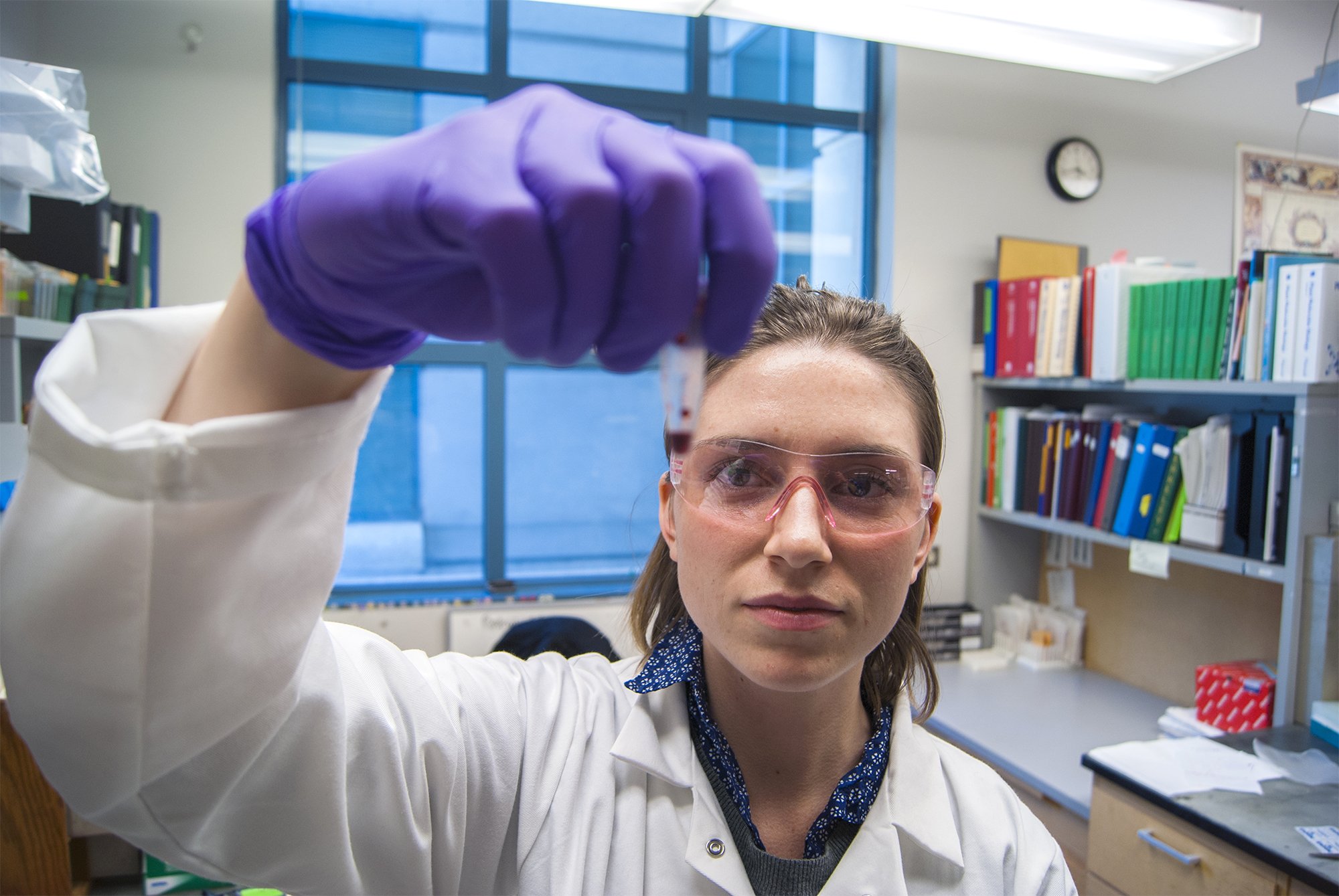
Photo by David Galvez.
The department trains graduate students in modern research areas of plant biology. Students' courses of study are designed individually, in light of their interests and career goals. The graduate program features an introductory seminar (Faculty Research Review), six five-week core course modules, and additional special topic courses and seminars in areas of faculty specialties. The department has research expertise in the following areas: molecular, cellular, genetic, biochemical, physiological, developmental, and structural biology, and plant-microbe interactions.
Our graduate program consistently ranks best in the world for Plant Biology. Our faculty is inclusive and engaging, and each graduate student is fully funded for five years.
Pathway Through the Plant PhD Program
Before the beginning of the fall semester, new students discuss their background and interests with the graduate advisors, who help plan academic programs. During the first semester, all new students enroll in a two-credit seminar in which faculty members summarize their current research programs. Each student also rotates through three research laboratories for five weeks each in the first academic semester. The rotations give students the opportunity to explore areas of interest as possibilities for Ph.D. research.
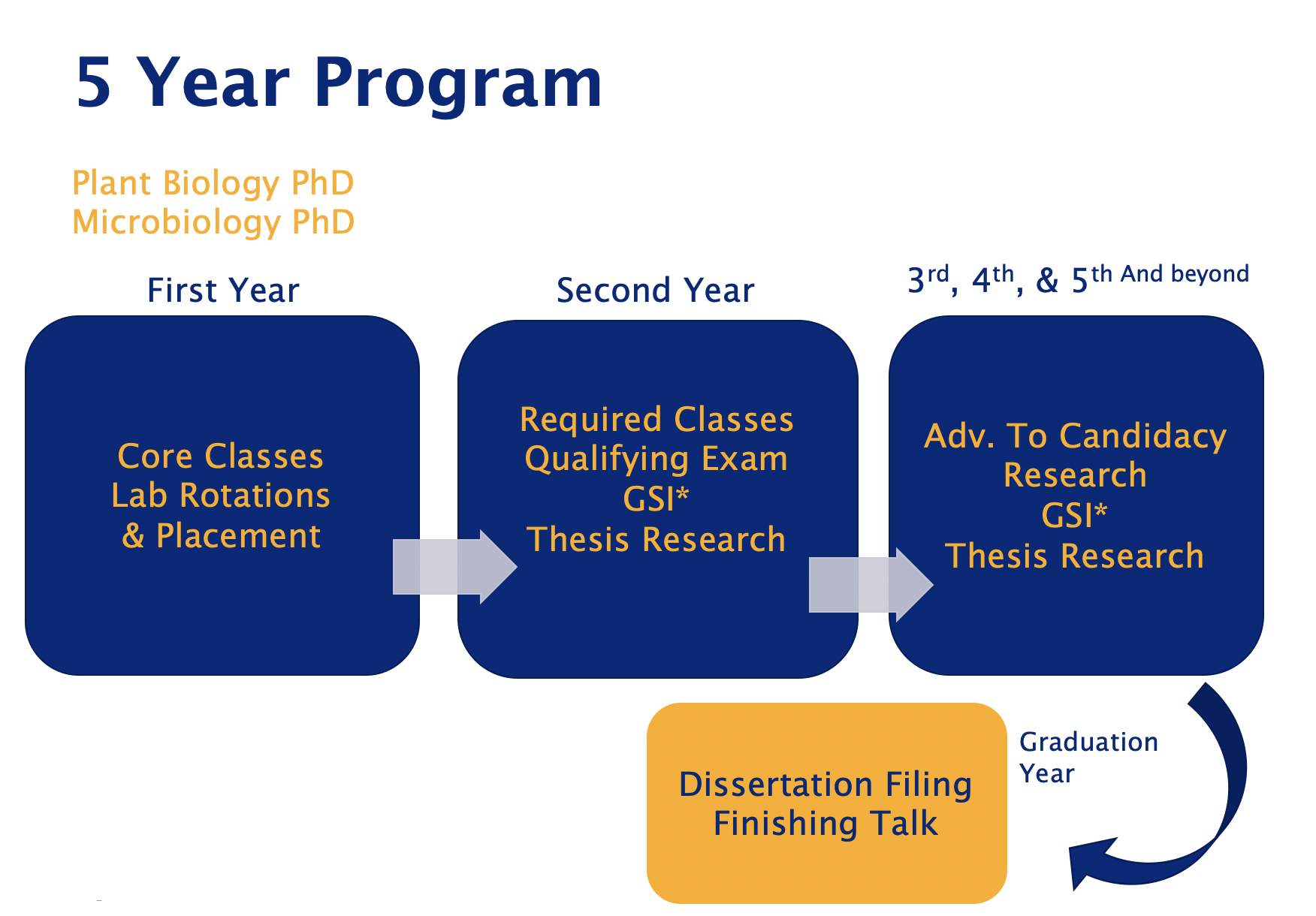
All students must take a two-semester core course comprised of six modules, which cover the following topics: plant developmental genetics, genomics and computational biology, plant diversity and evolution, plant cell biology, plant biochemistry, and plant systems biology. All graduate students must enroll in two graduate-level seminar courses during their first two years. With their emphasis on student presentations and discussions, these courses further introduce faculty and students. At the end of the first year, each student will select a permanent Research Advisor (major professor) and will begin work on the thesis project.
Graduate Student Instruction (GSI)
Each student serves as a Graduate Student Instructor (GSI) for approximately 20 hours per week for two semesters. Students participate in the GSI training conference sponsored by the Graduate Division and the Graduate Assembly and enroll in a two-credit teaching workshop. Students are appointed as a GSI for a lower-division course before being a GSI for an upper-division course sponsored by the department. International students educated in schools where English is not the language of instruction are required to pass the Test of Spoken English (TSE) before they serve as teaching assistants.
Lab Rotations
**Beginning Fall 2022, the lab rotation program will be three five-week rotations, completed in the first semester. Students should expect to be placed in their thesis lab by the start of the spring semester of the first year.
Incoming students must rotate through three different laboratories during the first semester, for about five weeks per rotation. The student may select laboratories affiliated with the Graduate Group, or select a lab outside the Group to learn a particular skill. Students explore opportunities for rotations with the relevant faculty and the graduate advisor. The rotations give students an opportunity to explore an area of research in which they may have an interest but no direct experience.
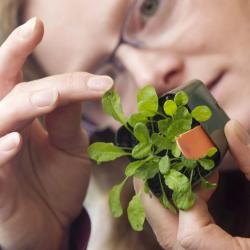
In most cases the rotations will involve laboratory work. However, sometimes a rotation could take the form of reading and discussion. Although some incoming students may have interest in particular faculty for thesis research, students need rotations for exposure to research outside their immediate area of interest. Students have the freedom to investigate different opportunities for a suitable research advisor. Whereas students may express interest in any particular laboratory at any time, they may not establish firm commitments before completing all three rotations. The student generally chooses a Research Advisor after the third rotation. In exceptional cases the student may take a fourth laboratory rotation. After formalizing the choice of a research advisor, the student initiates a research project in the advisor's laboratory.
Qualifying Exam
During the second year, students may take additional courses in preparation for the Ph.D. qualifying examination. This examination is usually taken by the end of the second year. The Qualifying Examination Committee, a four-member committee including one Berkeley Academic Senate member from outside the department, is appointed in consultation with the student. The goal of the examination is to assess the candidate's broad knowledge of plant biology as well as to determine in-depth knowledge in the proposed area of research. Each examination covers five of the following eight subject areas: physiology, biochemistry, cell biology, genetics, molecular biology, development, structure, and plant-microbe interactions. The committee also discusses the student's research topic.
After passing the qualifying examination, the student selects a three- or four-member committee to serve as the student's Dissertation Committee. The chair of this committee is the student's Research Advisor. An adjunct faculty member can serve as co-chair with a regular departmental faculty member as the other co-chair. This committee meets on a regular basis to supervise and assist the student in the research that will be described in the Ph.D. dissertation. All members of the committee must approve the dissertation. The student is not subjected to a formal final examination. Rather, the results of the dissertation project are presented at a departmental colloquium.
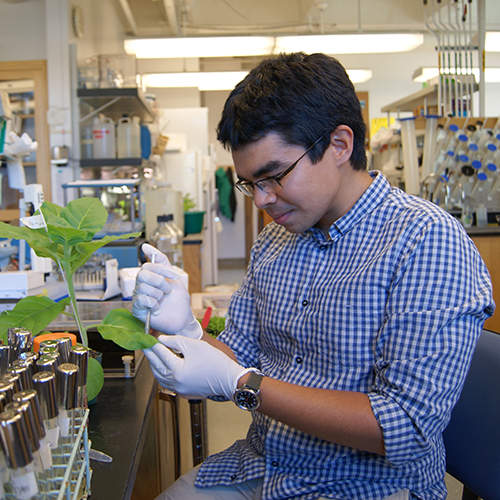
[image caption]
Graduate Review
Evaluation of first year student progress occurs at the end of the first year. The faculty meet as a group to review first year student grades and core-course comments from instructors, laboratory rotation evaluations from faculty members, and any student comments the student wishes to present. The faculty discuss each student individually and his/her progress over the course of the year which results in the student receiving a review letter which becomes part of the student’s file. The review letter summarizes the student’s progress and may include specific recommendations or coursework requirements from the faculty. Reviews consider:
- Mastery of a significant body of relevant knowledge
- The capacity to think and write critically
- The ability to apply information learned in the classroom and laboratory to the solution of relevant biological problems
Dissertation
The student invites a three-member committee to serve as the Dissertation Committee. (The student may request a four-member committee, or the Graduate Division may require one in certain circumstances). The student identifies the Committee members in consultation with the Head Graduate Advisor. The Committee must include representatives of at least two academic departments. The Chair of the Committee will be the Research Advisor, who must have faculty membership in the Graduate Group. However, an adjunct faculty member can serve as Co-Chair with a regular faculty Co-Chair. The committee must have at least one Academic Senate member.
At least once per year this Committee will meet with the student and evaluate progress. The Graduate Division requires that a form be sent to the Graduate Division certifying progress made by the student. The Dissertation Committee members will also advise the student about carrying out research.
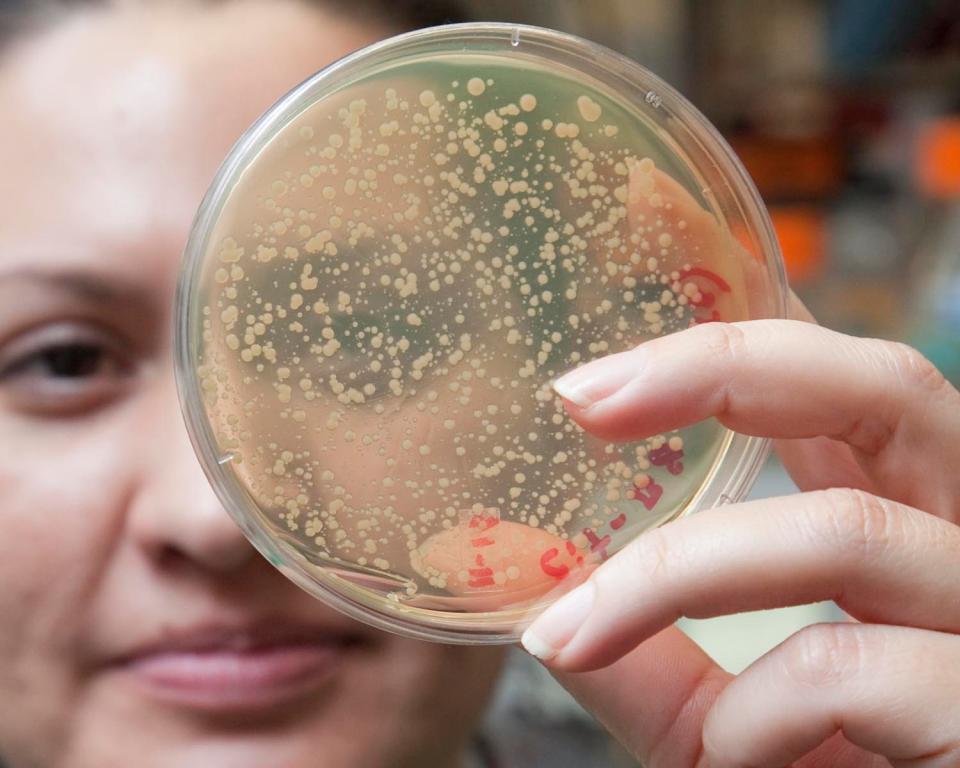
All members of the Committee must approve and sign the dissertation before the Ph.D. degree gets conferred.
For the Ph.D. degree, students must complete a dissertation based on original and independent research.
A final examination is not required. However, all students must present a finishing seminar to summarize the results of their dissertation project, and must respond to questions from the audience. If the faculty do not find the seminar satisfactory, they may ask the student to present the seminar again to address the concerns.
Most students take five years to complete the Ph.D. program: two years before the Qualifying Examination, and three years afterwards.

